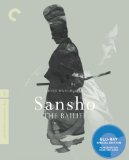| Reviews & Columns |
|
Reviews DVD TV on DVD Blu-ray 4K UHD International DVDs In Theaters Reviews by Studio Video Games Features Collector Series DVDs Easter Egg Database Interviews DVD Talk Radio Feature Articles Columns Anime Talk DVD Savant Horror DVDs The M.O.D. Squad Art House HD Talk Silent DVD
|
DVD Talk Forum |
|
|
| Resources |
|
DVD Price Search Customer Service #'s RCE Info Links |
|
Columns
|
|
|
Sansho the Bailiff: Criterion Collection
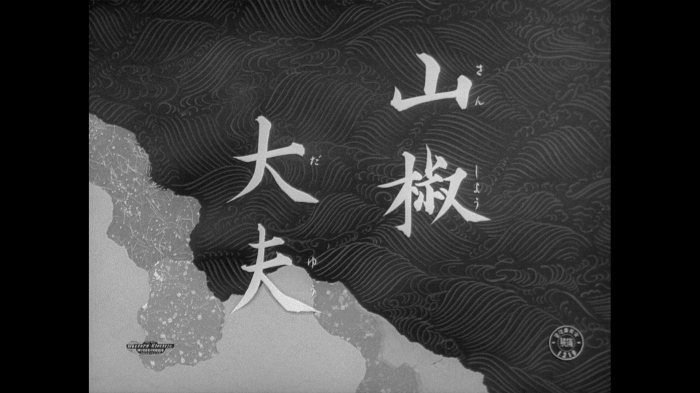 Some movie characters just can't catch a break, which usually makes for an absorbing but ultimately downbeat viewing experience. Films like Darren Aronofsky's Requiem for a Dream show us adults falling prey to their various addictions and the wreckage it leaves in their wake. Other films like The Road and Grave of the Fireflies focus on otherwise good people caught up in horrible scenarios and forced to fend for their survival. Though it's not set in a post-apocalyptic landscape, Kenji Mizoguchi's Sansho the Bailiff (1954) might as well be: the once-wealthy family it follows is rendered homeless, relying on the mercy of strangers in order to live happy, comfortable lives. Unfortunately, mercy seems to be in short supply. Our three central characters are Tamaki (Kinuyo Tanaka) and her two children, Anju (Kyoko Kagawa) and Zushio (Yoshiaki Hanayagi). The patriarch, a governor, is no longer in their lives after being banished by a feudal lord. Not surprisingly, the social landscape of medieval Japan doesn't provide them with much of a safety net, so the once-prosperous and compassionate family pursues their husband and father on foot. An old woman shelters them one night and arranges for safe transport by boat...but almost immediately, the boatmen separate the children from their mother and sell them into slavery. Ruled by the oppressive Sansho (Eitaro Shindo), the children develop opposite outlooks on life: Anju follows her father's creed of treating others with kindness, but Zushio adapts the aggressive and unforgiving nature of his captors. Their lone ally, for lack of a better word, is Taro (Akitake Kono), second-in-command and son of Sansho, who encourages them to survive until Anju and Zushio can find a way to reunite with their parents. Unfortunately for the family, this isn't a Shawshank Redemption story of eventual justice in the presence of unjust captivity. There are no clean breaks, no retribution for the wicked and, needless to say, the central characters don't reunite with a slow-motion group hug. While Sansho the Bailiff isn't devoid of all hope, it's a tough film to watch for more sympathetic and emotional audiences. Even so, new viewers will undoubtedly be invested in the family's fate while seasoned fans will continue to soak up the strong performances and terrific cinematography by Kazuo Miyagawa. Though Sansho the Bailiff is undoubtedly a film that manipulates its audience, the story (based on a Japanese folktale and the eponymous 1915 short story by Mori Ogai) certainly gets its point across: "Without mercy, man is like a beast." The Criterion Collection's well-rounded 2007 DVD release marked Sansho the Bailiff's Region 1 debut; fittingly, this updated version is the first domestic Blu-Ray edition of a Mizoguchi film. They're practically identical packages in every conceivable way, save for the expected boost in audio and video quality.
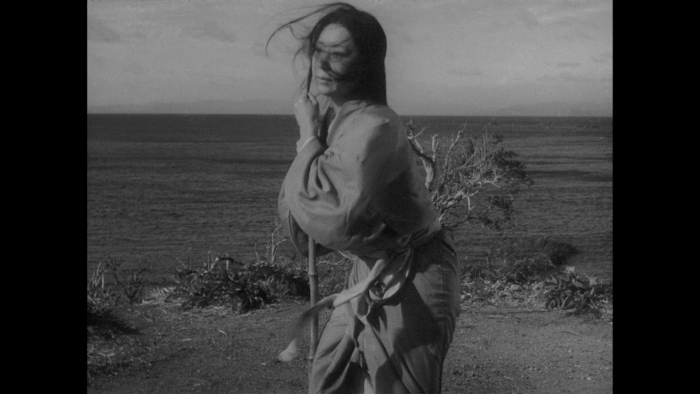
Not surprisingly, Sansho the Bailiff's fine cinematography is rendered nicely on this crisp 1080p transfer. It looks to have been taken from the same source as Criterion's 2007 DVD, but the bump to HD reveals a marked improvement in clarity, texture and depth. Black levels and shadow detail are uniformly excellent, even during indoor scenes. Fortunately, there's also no window-boxing this time around. A mild amount of debris and the occasional missing frame are almost expected under the circumstances, but this is terrific restoration work for a 1950s-era Japanese film. From top to bottom, fans of Sansho will be pleased.
DISCLAIMER: These promotional images are strictly decorative and do not represent Blu-Ray's native 1080p resolution. The Japanese LPCM 1.0 mono track is perfectly acceptable overall, as neither the dialogue nor the original music (by Fumio Hayasaka, Kinshichi Kodera and Tamekichi Mochizuki) fight for attention. A few light hisses and pops are present, but it's nothing major and Criterion undoubtedly did what they could to clean up the source material. Optional English subtitles are presented during the main feature only.
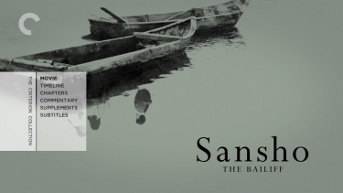 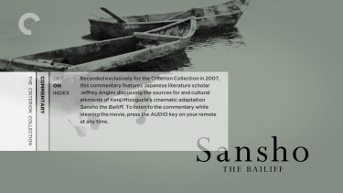
Kenji Mizoguchi's Sansho the Bailiff is much more enjoyable to look at than it is to process and connect with, as the weight of the family's suffering may not sit well with anyone hoping for a hopeful resolution. Still, the top-tier production values, strong performances and memorable characters make Sansho worth a look for those interested in Japanese period films. Criterion's Blu-Ray is a basic port of their 2007 DVD, serving up a suitably fine A/V presentation and nothing new in the way of extras. Recommended.
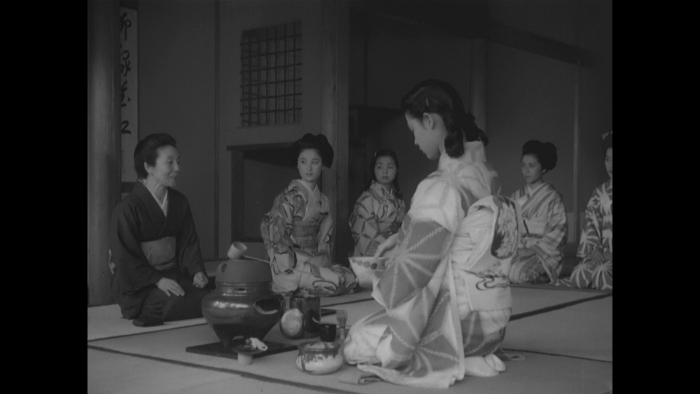 |
|
| Popular Reviews |
| Sponsored Links |
|
|
| Sponsored Links |
|
|
| Release List | Reviews | Shop | Newsletter | Forum | DVD Giveaways | Blu-Ray | Advertise |
|
Copyright 2024 DVDTalk.com All Rights Reserved. Legal Info, Privacy Policy, Terms of Use,
Manage Preferences,
Your Privacy Choices | |||||||









